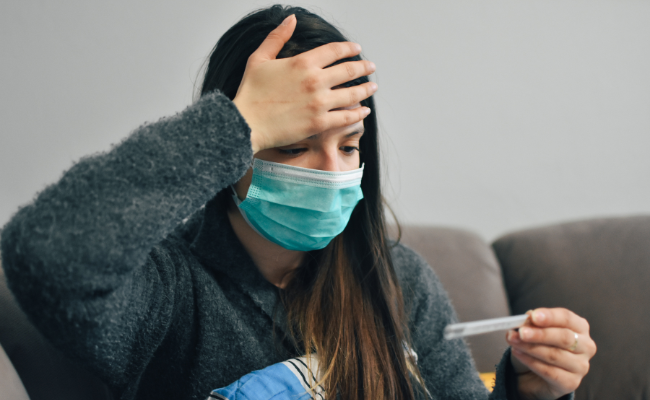Study finds repeat COVID is riskier than first infection
The risk of death, hospitalization, and serious health issues from COVID-19 jumps significantly with reinfection compared with a first bout with the virus, regardless of vaccination status, according to a study published on Thursday.
“Reinfection with COVID-19 increases the risk of both acute outcomes and long COVID,” said Dr. Ziyad Al-Aly of Washington University School of Medicine in St. Louis. “This was evident in unvaccinated, vaccinated, and boosted people.”
The findings were drawn from U.S. Department of Veterans Affairs data collected from March 1, 2020, through April 6, 2022, on 443,588 patients with one SARS-CoV-2 infection, 40,947 with two or more infections, and 5.3 million noninfected individuals. Most of the study subjects were male.
Reinfected patients had a more than doubled risk of death and a more tripled risk of hospitalization compared with those infected with COVID just once. They also had elevated risks for problems with the lungs, heart, blood, kidneys, diabetes, mental health, bones and muscles, and neurological disorders, according to a report published in Nature Medicine.
“Even if one had a prior infection and was vaccinated – meaning they had double immunity from prior infection plus vaccines – they are still susceptible to adverse outcomes upon reinfection,” Al-Aly, the study leader, said.
The study found that people with repeat infections were more than three times more likely to develop lung problems, three times more likely to suffer heart conditions, and 60% more likely to experience neurological disorders than patients who had been infected only once. The higher risks were most pronounced in the first month after reinfection but were still evident six months later.
The researchers said that the cumulative risks and burdens of repeat infection increased with the number of infections, even after accounting for differences in COVID-19 variants such as Delta, Omicron, and BA.5.
Read More
“We had started seeing many patients coming to the clinic with an air of invincibility,” Al-Aly told Reuters. “They wondered, ‘Does getting a reinfection matter?’ The answer is yes, it does.”
Ahead of the fast-approaching holiday season with travel and indoor gatherings, “people should be aware that reinfection is consequential and should take precautions,” he added.
“We’re not advising draconian measures, but maybe if you’re going on a plane, wear a mask,” Al-Aly said. “If you’re in a supermarket, consider that the person near you may have a weak immune system, and if you wear a mask, you might help to protect them.”


